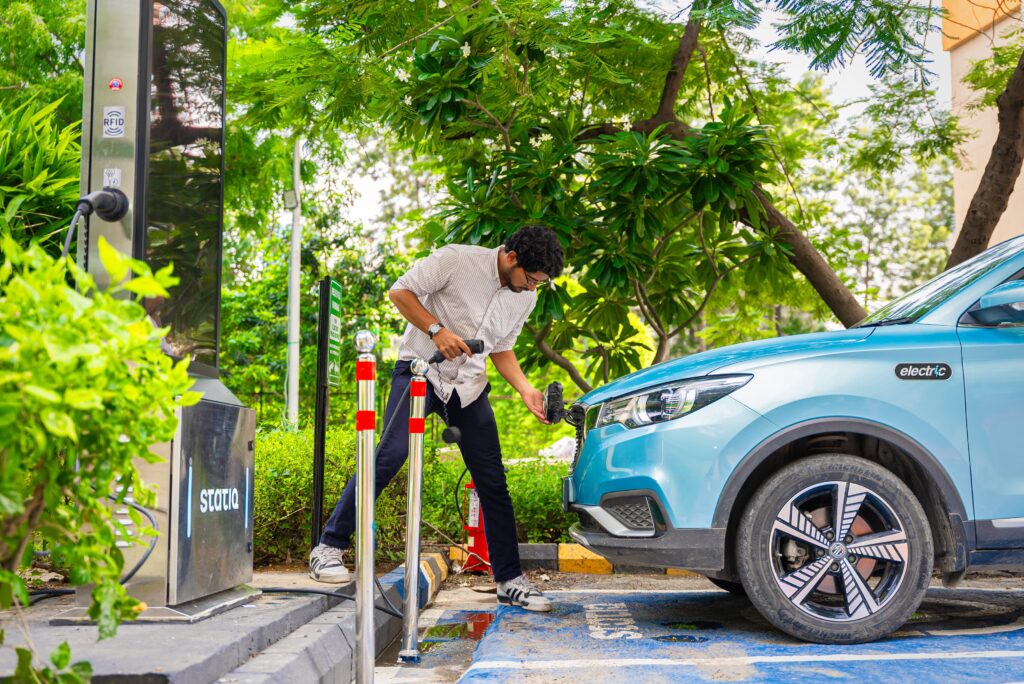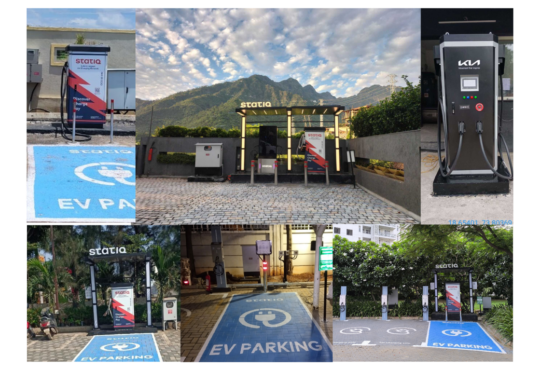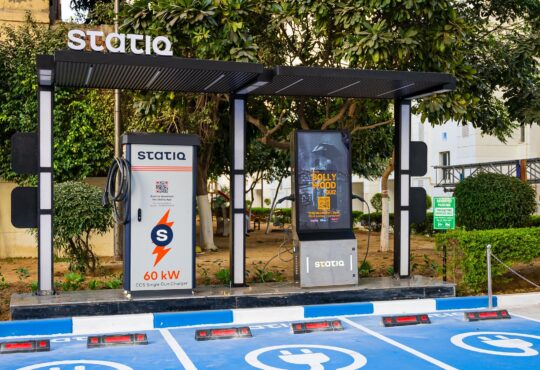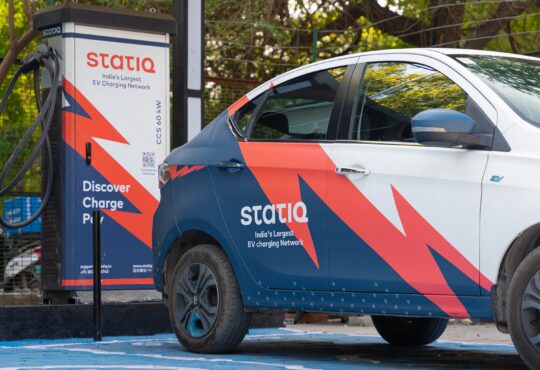
Home Charging vs. Public Charging: Pros and Cons
Electric vehicles (EVs) are gaining popularity worldwide as a cleaner and more sustainable mode of transportation. There are many factors that we look into whenever we buy an electric vehicle, be it battery capacity, EV range, charging time, and the availability of charging stations and home charging solutions for the vehicle. In this blog, we will try to find out if it’s good to charge at home or at a public charging station. We will also explore the pros and cons of home charging and public charging to help you make an informed decision.

Charging At Home
Pros
- Convenience: Charging your EV at home is undoubtedly the most convenient option for EV owners. You can plug in your vehicle overnight, and it will be fully charged and ready to go in the morning. There’s no need to make special trips or spend time at EV charging stations.
- Cost Savings: Home electricity rates are often lower than the cost of charging at public stations. This means you can charge your EV more economically in the comfort of your home.
- Flexibility: With home charging, you have the flexibility to charge your EV whenever it’s most convenient for you. You’re not bound by the availability of public EV charging stations, which can sometimes be occupied.
- No Waiting: You won’t have to wait in line to charge your vehicle at home. Public charging stations, especially during peak hours, may have limited availability and require waiting.
Cons
- Limited Accessibility: If you live in an apartment without dedicated parking, or if you’re a renter, home charging may not be a feasible option for you.
- Higher Electricity Bills: Charging electric cars at home can impact your electricity bills. Sometimes, the charges can be significantly higher depending on the electricity rates and chargers you use.
- Longer Charging Time: Home charging is usually much slower than charging at public charging stations because the standard voltage for households in India is 220 V. The amount of power available is limited and there is no way to speed up the charging process.
Charging At Public EV Charging Station
Pros
- Accessibility: Public charging stations are readily available in urban areas and along highways, hotels, and public places making them a viable option for EV owners who don’t have home charging capabilities.
- Convenient: It is highly convenient, all you need to do is locate the public EV charging station on the Statiq mobile app book your charging, and plug in your electric vehicle once you reach the location.
- Fast Charging: Some public charging stations offer fast-charging options, allowing you to recharge your battery quickly when you’re in a hurry. Statiq has installed 7000+ EV chargers (AC and DC) across 60+ cities in India.
- Wide Compatibility: Public electric vehicle charging stations are designed to accommodate various EV models and charging types, ensuring compatibility for most electric vehicles.
Cons
- Cost: Charging at public stations can be a bit more expensive than home charging, depending on the EV charging network and location.
- Availability: During peak hours or in high-demand areas, you may encounter limited availability at public charging stations, leading to waiting times.
- Inconvenience: Charging your EV at public stations can be less convenient than plugging it in at home. You may need to plan your routes around charging locations and factor in potential delays.
- Dependence: Relying solely on public charging can be challenging in regions with limited charging infrastructure, particularly in rural or remote areas.
Charge at Your Convenience
Ultimately, choosing between home charging and public charging depends on individual circumstances and needs. Many EV owners find that a combination of both options works best. You can enjoy the convenience of home charging for your daily needs while public charging stations are more convenient for longer trips or when you’re away from home.
India is one of the fastest-growing economies and aims to achieve 30% EV sales by 2030. As EV adoption continues to grow, so does the charging infrastructure. This means that access to public charging stations will get better in the coming years making them more viable option for EV owners.
In conclusion, the choice between home charging and public charging for your electric vehicle comes down to factors like convenience, cost, and your specific living situation. As the EV charging landscape evolves, you can expect greater flexibility and accessibility, ensuring that you can charge your EV in a way that suits your lifestyle and needs.
Also Read, How Much Time Does It Take To Charge An Electric Vehicle?



